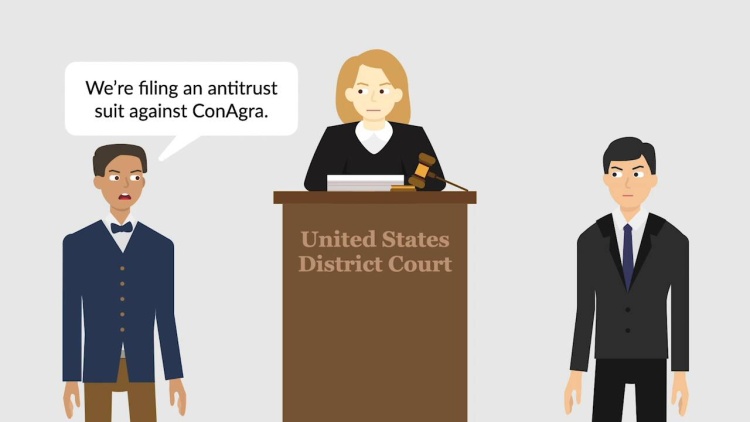Unitherm Food Sys., Inc. v. Swift-Eckrich, Inc.
United States Supreme Court
546 U.S. 394 (2006)
- Written by DeAnna Swearingen, LLM
Facts
ConAgra (defendant) patented a process invented by Unitherm Food Systems, Inc. (Unitherm) (plaintiff). Jennie-O, a purchaser, and Unitherm sued ConAgra in the United States District Court for the Western District of Oklahoma for patent and antitrust violations. Jennie-O was dismissed for lack of standing. At the close of evidence, ConAgra requested a directed verdict, which was denied. The jury found for Unitherm, and ConAgra did not renew its motion for judgment as a matter of law or request a new trial. ConAgra appealed to the United States Court of Appeals for the Federal Circuit. That court found that the sufficiency of the evidence could not be reviewed due to ConAgra’s failure to make a post-verdict motion for relief. Nevertheless, the prevailing rule in the tenth circuit allowed appellate review without a postverdict motion if the party moved for judgment as a matter of law before the case went to the jury. Cummings v. General Motors Corp., 365 F.3d 944 (2004). The appellate court held that there was proof that the patent was fraudulent but insufficient evidence of the antitrust claim. The jury verdict was vacated and the case remanded for a new trial. Unitherm petitioned the United States Supreme Court for certiorari, which was granted.
Rule of Law
Issue
Holding and Reasoning (Thomas, J.)
Dissent (Stevens, J.)
What to do next…
Here's why 907,000 law students have relied on our case briefs:
- Written by law professors and practitioners, not other law students. 47,100 briefs, keyed to 996 casebooks. Top-notch customer support.
- The right amount of information, includes the facts, issues, rule of law, holding and reasoning, and any concurrences and dissents.
- Access in your classes, works on your mobile and tablet. Massive library of related video lessons and high quality multiple-choice questions.
- Easy to use, uniform format for every case brief. Written in plain English, not in legalese. Our briefs summarize and simplify; they don’t just repeat the court’s language.





